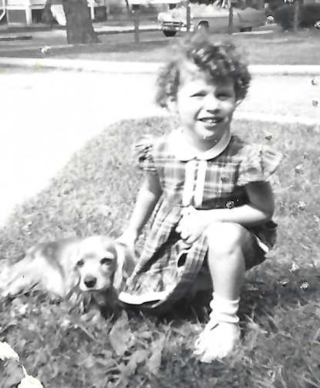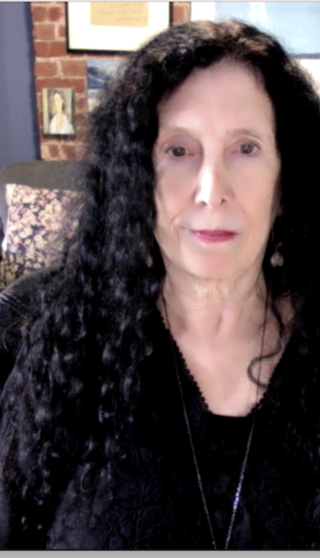Attention
My Hair Has Its Own Psychology: A Personal Journey
As I struggled to change, so did my hair.
Posted January 18, 2022 Reviewed by Tyler Woods

There I was at five, festooned with angelic blonde corkscrews, a showstopping adorable little ham who bloomed under the sunshine of all the attention that I received. If I belted out a song, people beamed because I was so cute. My ringlets bobbed in such a charming way. I believed my whole life would be as golden as my curls. But what happened to that identity when my hair, and what was considered acceptable, changed?
In the 70s, curls were out. Girls now had long, straight hair, and I was desperate to emulate that. The only thing was, I couldn’t. My naturally curly hair was just plain wrong, which meant I was wrong, too. Instead, I was mocked, pitied, and withdrew into myself. My mother, who had loved my blonde curls, hated my now dark, wild hair, which to her was almost as bad as my paisley bellbottoms, love beads and bad boy romances. All of these smacked of my being out of control, she believed, which she increasingly thought my behavior also showcased.
I loved my mom and I wanted her to approve of me as much as I wanted to be like the other girls. So, I broke out the ironing board to iron my hair. I once taped my hair to my head to straighten it, then used huge juice cans and a chemical straightener. It might have worked for a while, except that as soon as the humidity erupted, so did my hair. At the nightmare that was high school, caricatures of my broken, stringy, artificially straightened hair appeared on blackboards, and even the teachers laughed. My first thought when meeting anyone new was to duck because I was sure they were judging me unfavorably. So, I slunk more into the background, wishing myself and my hair invisible.
I tried sometimes to stand out, auditioning for the school play and failing. (“Who would want to see someone who looks like you on stage?” my mother snapped.) Even my beloved sister, who had gorgeous, thick, straight hair down to her waist, rolled her eyes because I didn’t want to get a haircut before a school dance, where once again, I slid into a corner and stayed.
I heard over and over how I was supposed to be. Both my mother and my sister followed the same plan over the years: both elementary school teachers, both married with two children and good haircuts, both using the same hair color to cover the grays. I needed the same “adult” hair that they had. I needed to be as presentable as they were, and, my sister advised me, if I ever had a child, I’d need a sensible “mother haircut,” like what she had. “That’s way in the future,” I told them, dismissing the whole subject.
When I got married, my mother wanted me to wear my sister’s wedding gown, and to put my hair into an updo. But that wasn't me. Instead, I wore a midnight velvet wedding dress and my hair was wild. For the first time, I didn’t pay attention to my mother and sister’s comments about my hair, because I was so happy, so loved by my husband and my friends, so myself.

But then, the world changed again when I gave birth to our son and soon after became ill with a rare blood disease that no one thought I would survive. I was in a medical coma for nearly 3 1/2 weeks, in the hospital for four months, and on all sorts of medications. I survived.
But my hair didn’t.
One day, I was playing with my new baby, leaning over him, when I felt something slide from my head, a huge hank of long hair that fell into my son’s face and had him crying. I cried, too. “It’s only hair,” my husband Jeff assured me. He kept telling me I was beautiful, I was lovely, even as my hair fell away. When I ventured outside, I put a scarf on my head, trying to ignore the snickers of teenage girls on the subway. “They aren’t seeing the real you,” Jeff told me. Finally, as more and more hair slid from my head, I weepingly went to a woman who specialized in cancer cuts, and she very gently, cut everything away.
I now had the sensible mother haircut my mother wanted, and while she and my sister loved it, I was miserable. It felt wrong to me, which meant that I felt wrong. I didn't want to be around people, or to socialize because of it. So I grew my hair out. I stopped straightening it because I wanted to encourage it, the same way I needed to encourage myself.
“You let yourself go,” my mother said curtly. "No one has hair like you." But what did that mean? Couldn’t it mean freedom? Letting go of constraints? To my surprise, as soon as I let go of all straightening and blow-drying and products, strangers began to comment on my curls. “I know you must get told this all the time,” one woman on the subway said to me. “But your hair is so wonderful. Those curls!” I began to be known for my wild curly mop, and to my shock, I began to feel confidence brewing in every curl, as if my hair was giving me the right to be outspoken, to be my true self, to not care what anyone else might think.
In her last days, suffering from dementia, my mother changed. She looked at me and she now wanted long hair for herself. She wanted her granddaughter to grow her hair long. She urged my sister to grow her hair, too. In tandem as always, both my mother and sister’s hair grew. Both turned white. The only difference was the barrette with which my sister held the side of her hair back, the same way my mother had encouraged her to do back when she was twelve.
So, is our hair a function of who we are? Does going gray mean you are liberated? Or, like me, do you feel fiercer, wilder, more yourself with color? Must every woman in a crisis in a film or in a book reach for the scissors to feel brand new? I never wanted to do what others expected me to do, and that included how I looked. Now, I’ve finally claimed it. “We know you by your hair!” a friend told me. I thought about how remarkable that was, how, perhaps my whole voyage to accept and celebrate my hair was really about accepting and celebrating myself.




